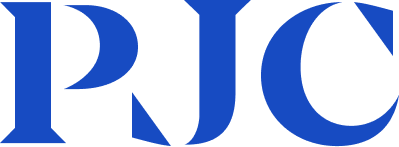PJC interview: Thunkable
PJC Interview with Arun Saigal, CEO & Co-Founder of Thunkable
“How many times have you heard, ‘If only there was an app for that’, or ‘I have this great app idea’? Our goal with Thunkable is to empower anyone to take their ideas and turn them into apps, without learning to code or spending thousands of dollars on developers.”
- Arun Saigal, Co-Founder and CEO of Thunkable
About Thunkable: Thunkable enables anyone to create beautiful and powerful mobile apps. Learn more at https://thunkable.com/#/
About Arun: When Arun started school at MIT, he was initially planning to pursue a career in academia. But after working on projects like Scratch and App Inventor -- MIT creations that have redefined the EdTech space -- he saw the impact that these tools were having on people around the world.
“By developing technology that empowered others, particularly students, I realized that I could have a larger impact on the world.”
Outside of MIT, Arun continued to gain experience in tech working for Google, Khan Academy, and Quizlet, a then 5-person EdTech startup which has since experienced rapid growth. His passion for empowering others through technology ultimately led him back to App Inventor, which he grew out of the classroom in 2015 to create Thunkable.
What motivated him to start Thunkable: “App Inventor grew to over 4 millions users around the world. One day we were looking at the data and we saw that a significant portion of users were not using App Inventor as a learn to code tool, they were actually just trying to build their own apps. I knew that if we really wanted to help these people build commercial-level technology, this couldn’t just be a school project. Today, we carry around smartphones, some of the most powerful computers ever invented in our pockets, but no one knows how to program these devices. Almost everyone is al passive consumer. I think we should all be active creators.
On his experience with PJC: “PJC has strong experience on both the VC side and operator side, as well as a deep understanding of who we are and what we are trying to do. They are terrific partners, and we look forward to the rest of the journey!”
Top 5 takeaways from our interview:
Users will tell you when there’s a market opportunity.
When Arun started working on MIT App Inventor as an undergrad, he had no idea how much traction it would gain. Despite being Android-only and not very user-friendly, App Inventor amassed over 4 million users around the world. After talking with some of these users, it became clear to Arun that there was a real desire from people for more. He listened, and launched Thunkable in 2015.
Building your own technology is incredibly empowering.
One of the most powerful stories that Arun shared was about a user named Anwar Al-Haddad from Yemen. In 2016 during the Yemeni Civil War, Anwar needed an app that could help him better manage his solar power. Power sources had been hit hard during the war and solar power was becoming an increasingly important source of energy for Yemeni citizens. With no background or knowledge in coding, Anwar turned to Thunkable to create his own app that would help him and his family track their solar power reserves. Fast-forward to today, where Anwar’s app has been used by over 500,000 families and businesses -- and Anwar has been recognized by the Ministry of Energy for helping solve Yemen’s energy crisis. Learn more in the Fast Company article that covered this story.
There are so many cool apps being built on Thunkable.
Check out The 19 Best Thunkable Apps of 2019
The ecosystem is just as important as the app.
“At Thunkable, we’re trying to build the future app ecosystem.”
What does that mean? Today there are two different main operating systems for apps, Android and iOS. Tomorrow it could be Oculus. For Thunkable, the goal is to always empower people to build their own technology, whatever the platform.
When it comes to creating an ecosystem, Thunkable is working to become the full service solution for app builders: the marketplace for designs, app functionality, hiring app builders, etc.
Starting a company is the best way to create the change you want to see in the world.
“I was very passionate about this problem and at some point realized that no one was going to solve it, especially in the way that I thought would really help empower others. We have enabled more than one million users to build their apps, with less than 20 full-time employees. That’s a crazy amount of impact and the most rewarding part, especially because it required working together with an awesome team.

